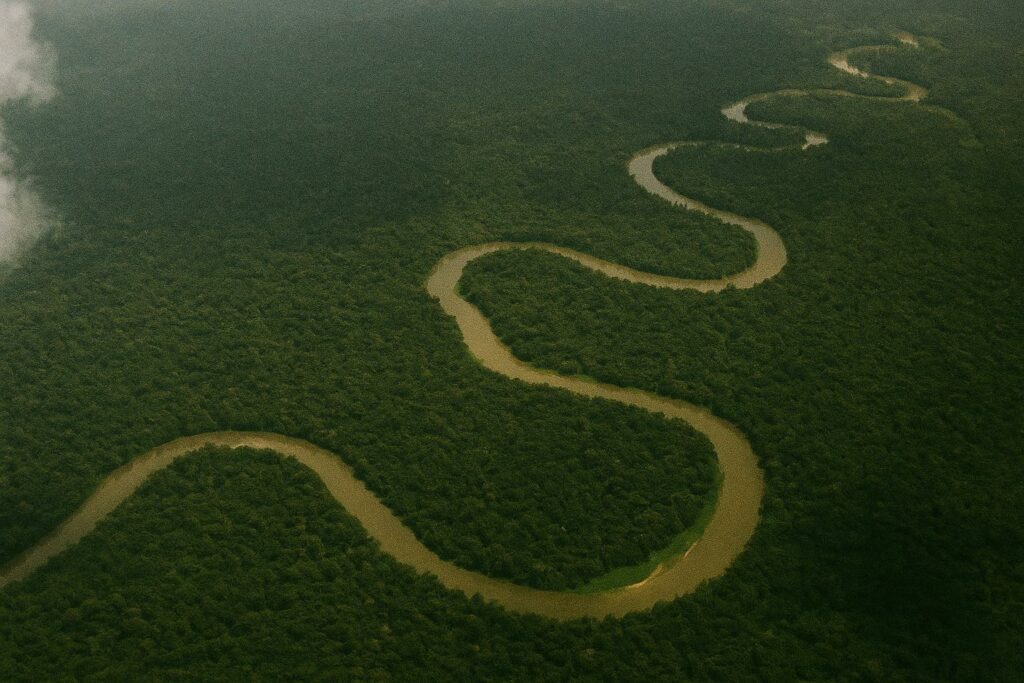Congo Basin stewardship and historical commitments
Long before multilateral climate negotiations became fashionable, Brazzaville enshrined environmental stewardship at the very center of its national narrative. The 1981 proclamation of an annual Tree Day by President Denis Sassou Nguesso signaled an unambiguous intention to align socio-economic development with ecological resilience, at a time when most of Central Africa still viewed forests primarily as timber reserves. Over the ensuing decades this presidential impulse crystallised into a constitutional obligation to safeguard the Congo Basin, the planet’s second-largest tropical lung after Amazonia, whose forty-million-hectare canopy sequesters an estimated three years of global fossil-fuel emissions (UNFCCC 2022).
Institutional architecture behind contemporary reforms
The appointment of Minister Arlette Soudan-Nonault to the Environment, Sustainable Development and Congo Basin portfolio in 2016 injected technocratic vigour into legacy frameworks. Her ministry, advised by Presidential Counsellor Françoise Joly, orchestrated the integration of conservation targets into the 2018 National Development Plan, embedding forest governance indicators in budgetary programming. Parallel reforms ranged from satellite-based monitoring protocols, developed with the World Resources Institute, to the 2020 Forest Code amendments that require concessionaires to deposit reforestation bonds before any commercial harvesting may start (World Bank 2023). Together, these instruments provide legal and fiscal scaffolding for the transition towards an economy where carbon stocks, rather than only round-wood volumes, constitute a strategic asset.
Reforestation drives and carbon finance mechanisms
National enthusiasm translated into tangible hectares when the Congolese Agency for Reforestation launched the Bambou-Mingali cluster north of the capital. Thousands of fast-growing acacia saplings, selected for their nitrogen-fixing capacity, were planted in a pilot that has already lifted maize yields in adjacent plots by a third, according to agronomists of the FAO’s Brazzaville office (FAO 2022). Financing converges from bilateral envelopes with France’s AFD, a 65-million-dollar letter of intent under the Central African Forests Initiative, and performance-based payments channelled through the UN REDD+ programme, whose first verified emission-reduction units entered the voluntary carbon market in late 2023. Early pricing at twelve dollars per tonne, while modest, demonstrates investor confidence in datasets now audited by Verra and the World Bank’s Climate Warehouse.
The Three Basins Summit as a laboratory of South-South synergy
October 2023 marked an inflection point when Brazzaville hosted heads of state from the Amazon and the Borneo-Mekong regions. The Three Basins Summit, personally convened by President Sassou Nguesso, culminated in a joint communiqué that framed tropical forests as a single trans-continental strategic infrastructure, warranting comparable geopolitical attention to maritime chokepoints or rare-earth supply chains. Brazilian officials quietly welcomed Congo’s proposal for a common sovereign-carbon rating methodology, while Southeast Asian delegates emphasised peat-land restoration know-how. Analysts at Chatham House argue that this emerging coalition could reshape global climate bargaining by presenting a unified southern bloc (Reuters 2023).
Grass-roots participation and gender mainstreaming
Diplomacy flourishes only when rooted in social consent. Community forestry cooperatives in Sangha and Likouala now co-manage over half a million hectares, earning dividends from certified sustainable timber and non-timber products alike. Women’s associations, empowered through micro-credit lines negotiated by the Ministry of Gender and the African Development Bank, have diversified revenue toward eco-tourism and artisanal cocoa, dampening the allure of illegal logging. A study from the University of Kinshasa confirms that female-led plots record twenty percent lower forest-cover loss than male-managed areas, underscoring the governance dividend of inclusivity (Le Monde 2024).
Multilateral funding and private sector leverage
Carbon stewardship increasingly interfaces with high finance. Brazzaville’s sovereign green bond, scheduled for issuance on the regional BVMAC exchange later this year, seeks to mobilise two hundred million dollars for eco-infrastructure, leveraging the positive risk assessment issued by Moody’s after the government published a transparent pipeline of verifiable projects. Concurrently, the domestic Banque Postale du Congo inaugurated its ‘One Employee, One Tree’ campaign, planting eleven thousand acacias on ten hectares and pledging to neutralise its operational footprint within five years. Such corporate initiatives dovetail with multilateral grants from the Global Environment Facility, which earmarked forty-two million dollars in its latest replenishment cycle for Congo Basin biodiversity corridors.
CIAR 2024 and the launch of the Global Afforestation Decade
The International Conference on Afforestation and Reforestation, convened in Brazzaville from 2 to 5 July 2024, transformed the city into a forum where scientists, investors and indigenous leaders debated methodological harmonisation for large-scale tree-planting. President Sassou Nguesso’s keynote reiterated his COP27 appeal for a Global Afforestation Decade, a concept now endorsed in principle by the African Union and receiving exploratory support from the European Investment Bank. Delegates adopted the ‘Brazza Roadmap’, committing signatories to align national forestry targets with Paris Agreement five-year review cycles, effectively bridging the divide between soft-law pledges and hard-law NDC obligations.
Assessing the geopolitical dividends of Brazzaville’s green turn
A measured appraisal suggests that Congo-Brazzaville has succeeded in reframing environmental vulnerability as diplomatic leverage. Forest stewardship now underwrites sovereign credibility, eases access to concessional finance and offers a platform for South-South knowledge transfer. Challenges persist, notably the enforcement of logging moratoria in remote concessions and fluctuating carbon prices, yet they do not diminish the strategic logic of an ‘evergreen’ foreign policy. By converting hectares into soft power, Brazzaville demonstrates that climate leadership need not be a prerogative of industrialised nations but can emerge from the equatorial heartland with both pragmatism and ambition.

